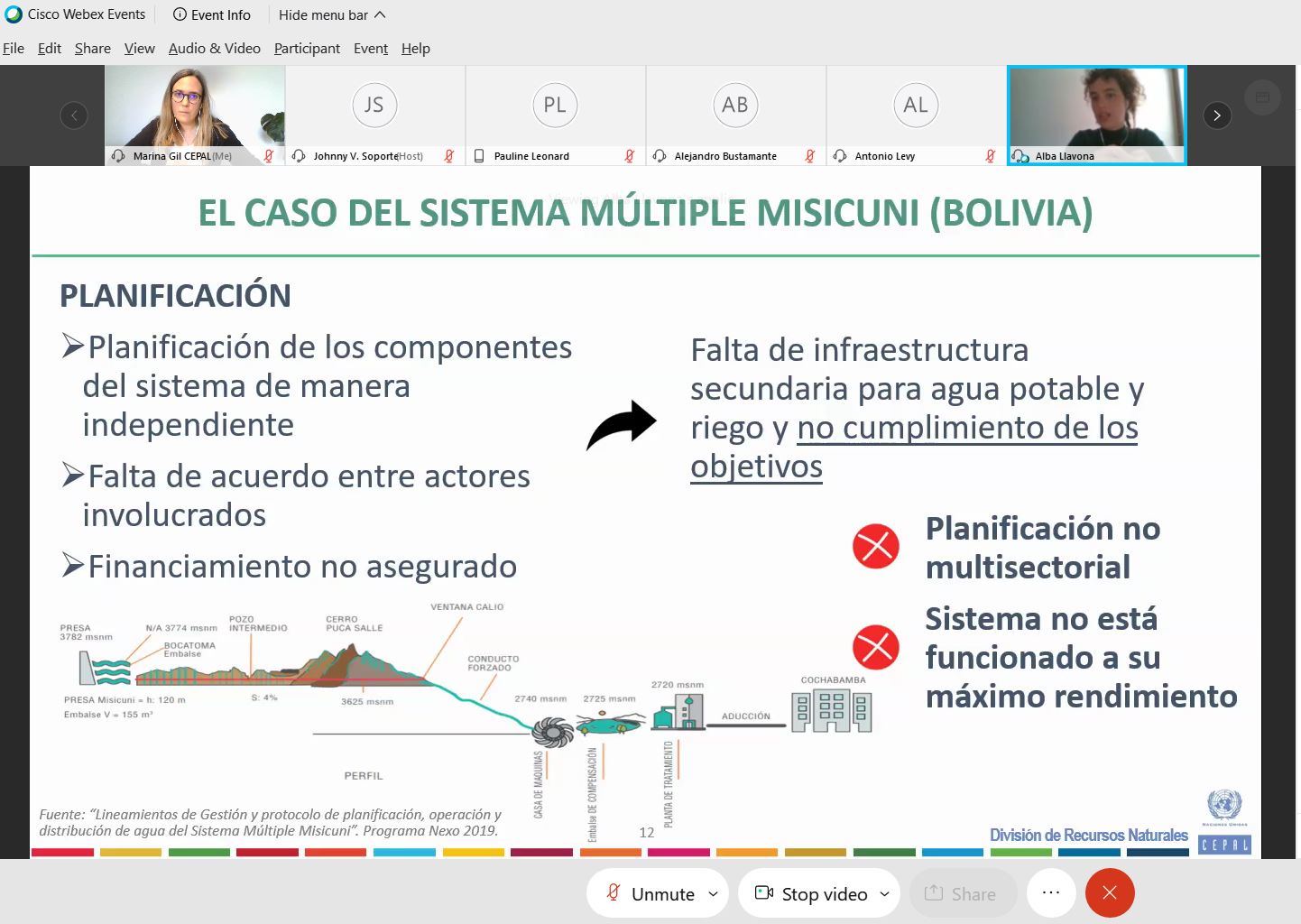Virtual Forum "Challenges for planning and monitoring the 2030 Agenda in Latin America and the Caribbean"
Work area(s)
Teaser
ECLAC, in cooperation with GIZ, presented the case of Bolivia on indicators and evidence-based policies under the Nexus approach.
Event information

Date
9 Oct 2020, 08:00 - 10:00Event type
The United Nations Economic Commission for Latin America and the Caribbean (ECLAC) and GIZ organized the Nexus virtual forum named "Challenges for planning and monitoring the 2030 Agenda in Latin America and the Caribbean", which was carried out on October 9 with different experts on the subject.
First, Mr. Alejandro Bustamante and Ms. Alicia Williner from the Latin American and Caribbean Institute for Economic and Social Planning (ILPES) presented about “Planning for development: Links between planning and implementation”. They explained the current state of the LAC’s countries on the integration of 2030 Agenda in the National Development Plans and showed the cases of Paraguay, Costa Rica and Uruguay.
This was followed by the participation of Ms. Pauline Léonard from the Environmental and Climate Change Statistics Area
of the Statistics Division of ECLAC, who presented the topic “Monitoring the 2030 Agenda for Sustainable Development and its demand for environmental indicators”. Ms. Léonard explained the current opportunities and challenges of environmental statistics in the region, and shared the results of the diagnosis of national statistical capacities for the production of the SDG indicators.
The last presentation was given by Ms. Alba Llavona of the Water and Energy Unit of the Natural Resources Division of ECLAC, who talked about the “Implementation of policies with the Nexus approach in LAC: indicators and evidence-based policies for the case of Bolivia”. Ms. Llavona explained the relevance of the Nexus approach adoption for the fulfilment of the 2030 Agenda. She highlighted that the Nexus approach adoption results on more profitable and efficient actions. In addition, she emphasized the importance of using the “Methodological Guide for the evaluation and implementation of the Nexus approach”, which is a practical tool developed by ECLAC for the adoption and evaluation of the Nexus in the LAC context. The expert showed the application of the Guide for the evaluation of the Misicuni Multipurpose Dam (Bolivia), where using relevance, coherence, effectiveness and efficiency criteria it was possible to obtain the main challenges and lessons learned from this multipurpose project. Finally, she concluded by pointing out the importance of adopting the Nexus approach in policies, plans, programs and projects design and implementation, such as irrigation programs, energy policies or basin plans, to contribute the progress of the 2030 Agenda.
Related project(s)
Organizing institution
Economic Commission for Latin America and the Caribbean (ECLAC)
- https://www.cepal.org
- 56 222100000
